Kelvin Zero
Taking health data out of silos with Secur-e-Health
As a first-time ITEA participant, Canadian SME Kelvin Zero isn’t a typical project leader - but, in the ITEA project Secur-e-Health, they drive a larger-than-average consortium towards the integration of new approaches for digital identification and privacy-preserving analysis. This will allow medical institutions of all types to collaborate and leverage data insights, promising big improvements to healthcare. Co-founder and Chief Technical Officer Thierry Gagnon and Project Manager Alexandre Peyrot talk through the experience so far.
An unexpected journey
With Multi-Pass™, their flagship software for secure biometric authentication, Kelvin Zero is a leader in passwordless solutions for critical domains like healthcare, government and finance. But this wasn’t always the case: the company’s origins lie in the first cryptocurrency bubble, when co-founder Philippe Desmarais approached Thierry with the concern that his digital assets were insufficiently protected. “The idea was to create a system that would allow organisations to securely offer or manage cryptocurrency and digital assets with more ease than what was then available,” Thierry explains. “We went into that journey by creating a cold storage wallet solution and patents around threshold cryptography – how to properly manage cryptocurrency or blockchain transactions into a sub-network approach that would be trusted within the decentralised network.”
“Eventually, it hit us that we had solved a problem for cryptocurrency, but also for data in general. A cryptocurrency transaction is really just bits of information being exchanged and verified; the same as if it was medical information, for instance. So, we turned what we had into a more generic approach to solve cybersecurity or data challenges in general. More recently, we focus much more on passwordless, next-generation multi-factor authentication. But we’re still tied to those original ideas: turning something centralised into a decentralised network, but making it safer, securer and easier than the typical solutions out there.”
Small and large
When this journey began, Kelvin Zero primarily offered one-off solutions to large organisations, including governmental and financial institutions. Although these contracts were valuable, their customised nature made it challenging to gain visibility and replicate results across different clients. The company therefore recognised the need to shift to companies that require the solutions already developed – a strategic change that opened doors to a wider range of opportunities.
“Every system should have some form of authentication, so everyone is a potential customer,” Thierry continues. “We now have a lot of interested partners, including managed service providers and managed security service providers. We’re still working with larger organisations, but we’re also trying to get into the small and medium segment, where it’s usually a bit more complex to have proper cybersecurity measures in place. It’s also more costly; they often don’t have an internal cybersecurity team. That’s why those managed service providers and managed security service providers are important, as they typically adapt what we have into their stack of solutions that they provide to small and medium organisations.”
Working with ITEA is kind of like saying, ‘Okay, you played in your regional league; you can now go to the Champions League of R&D'.
The international scene
This desire to work with companies of all sizes and domains was part of the appeal of ITEA, for which Kelvin Zero is the originator of Secur-e-Health. The project, which runs until December 2025, has its origins in a national cybersecurity pilot conducted with the National Research Council of Canada (NRC). When the NRC suggested that Kelvin Zero take their work to the international scene, they leapt at the opportunity.
“This is a very big project with a lot of partners,” notes Alexandre. “We have 25 companies divided across Canada, Finland, Germany and the Netherlands, so there’s a lot of coordination and money involved. Every stakeholder has their own target, especially for the technology. For example, one of our German partners is actually working on a new system to improve the situation around trauma. Each partner is providing a tiny piece of the puzzle and we are facilitating connections between the companies to fit each piece into the big picture.”
A significant element of this big picture is the need for better medical research, necessitating more data and patient participation. For years, data sharing has been touted as a solution, yet legal restrictions complicate this process – especially when organisations operate in different countries. Through its efforts to securely unify different healthcare silos, Secur-e-Health will make it easier to conduct and improve medical research, thereby improving the quality of medical predictive models and the efficiency of data-driven treatments.
Always expanding
“One of the great benefits for us personally has definitely been the potential to develop new customer relationships and expand to new markets,” says Thierry. “We’re attending a few European events now, like ENISE in León, the largest Spanish-speaking cybersecurity conference in the world. Without ITEA, I don’t think we would have had our network expanded enough for us to take on these opportunities abroad at this point in time. It sped up our development in Europe.”
“For example, we held Secur-e-Health’s annual review in Finland a few weeks ago,” Alexandre adds. “This was a major event for us because it was an ideal opportunity to give a clear view of what we have accomplished, where we are right now and what we plan to do until the end of the project.”
“And ITEA is not just Europe,” continues Thierry. “I’ve seen companies from Israel, South Korea and Canada. Given that ITEA is growing everywhere, it would be great to see a bit more presence at those organisations – maybe to expand its horizons a bit and have reviews and events in North America, South America or Asia. That would allow better growth from these countries and reinforce the global and commercial prospects of existing or future Europe-based ITEA projects. All parties could really benefit from that.”
The Champions League of R&D
The global nature of the initiative is just one of a number of ways that work with ITEA differs from Kelvin Zero’s previous experiences. Having worked on solo R&D projects under the NRC, a major differentiator of Secur-e-Health is the opportunity to go from R&D to commercialisation within one project. “There’s nothing worse than R&D that never sees the light of day. But commercialisation alone is not enough,” Thierry concludes. “If you want to build something resilient and future-proof, you need both R&D and the opportunity to see it all through. It’s a chance that everyone should seize. Then programmes like ITEA will be more successful, but so will all the different organisations involved in them.”
“As a small organisation, it’s our first time as a participant. Many people doubted that we would be able to manage it properly and see it through. But I’ve always liked challenges. Working with ITEA is kind of like saying, ‘Okay, you played in your regional league; you can now go to the Champions League of R&D’. At this point, we’re well on our way to being successful.”
More information:https://www.kzero.com/

Other chapters
Use the arrows to view more chapters
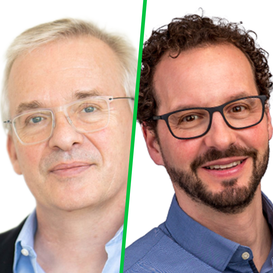
Editorial
By Dirk Elias and Régis Cazenave

Country Focus: Canada
Ten years of successful collaborations through ITEA

Kelvin Zero
Taking health data out of silos with Secur-e-Health

ITEA Success story: OPTIMUM
Offering greater efficiency, safety and usability in future smart factories
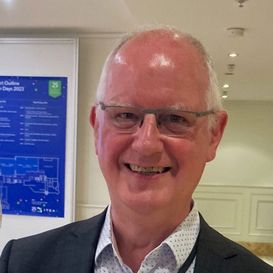
Community Talk with Erik Rodenbach
Running a well-oiled machine

SME in the Spotlight: D-SIMLAB
Simulation support for semicon and aerospace
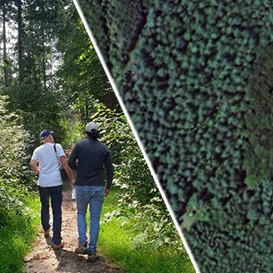
End user happiness: Deep4Sat43
Satellite technology enhancing forest health
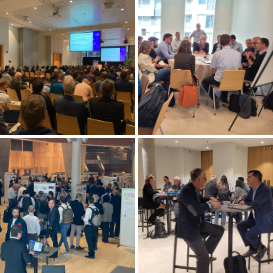
ITEA PO Days 2024 and exhibition
Active ITEA Community delivers a record number of ideas
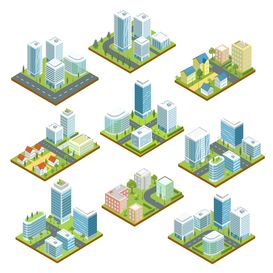
ITEA Success story: BIMy
An innovation engine for integrated BIM and GIS

